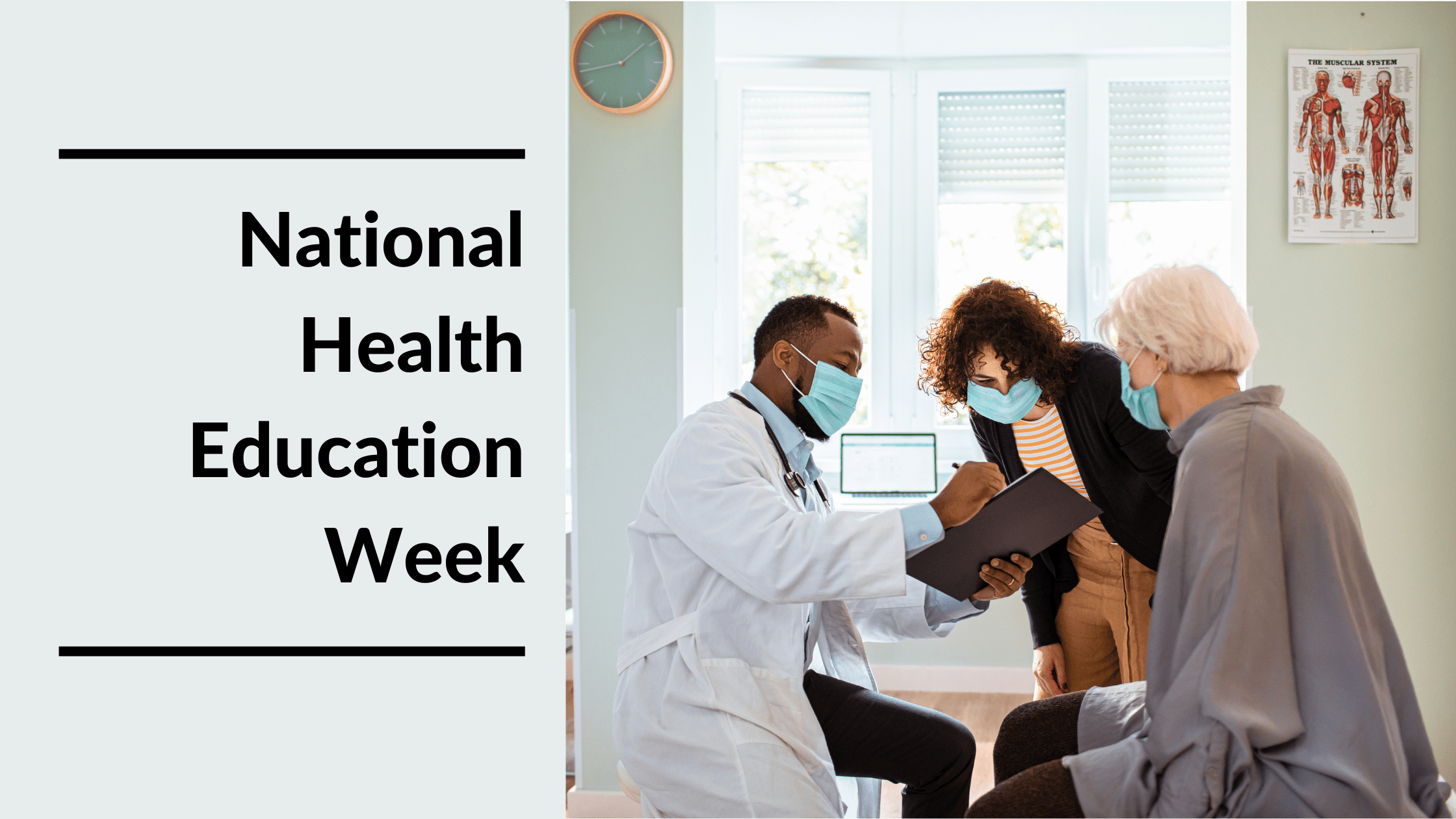
National Health Education Week is an annual observance during the third week of October. During this time, advocates aim to raise awareness of public health issues and the importance of health literacy.
Updated November 7, 2022
What Is National Health Education Week?
The Society for Public Health Education (SOPHE) and the Department of Health and Human Services (HHS) established National Health Education Week (NHEW) in 1995. This observance draws attention to leading public health issues while encouraging an appreciation for health education.
National Health Education Week aims to help people understand every aspect of their health — physically, mentally, and emotionally. After all, the more you know about your health, the better you can take care of yourself!
Each year, SOPHE hosts numerous events, webinars, and activities around the country to help the public become more informed about how they can improve their health and wellness. Advocates also work to connect everyday people to resources and professionals who can help them live healthier lives.
The internet is an excellent resource for learning and education. But, unfortunately, it has also become a facilitator for misinformation, especially in light of the COVID-19 pandemic. Because of this, advocacy groups like SOPHE are essential for undoing the harm that this false information can cause.
In addition to fostering healthy habits, SOPHE stresses the importance of listening to healthcare educators. Their knowledge benefits not only your health but that of your community as well.
Why National Health Education Week Matters To Seniors
With winter quickly approaching, older adults need to reassess their lifestyle habits. Here are a few areas of improvement seniors should consider during Health Education Week:
- Make sure to drink plenty of water, even if you aren’t thirsty. Avoid processed foods and large portions. And don’t forget to eat plenty of fruit and vegetables!
- Get active, even if it’s just a long walk. There are many indoor exercises for seniors to improve mobility, balance, and more.
- If you smoke or drink regularly, consider asking for help, cutting back, or quitting altogether. Start slow and progressively build yourself up on your successes.
And remember, health is more than simply eating right and exercising — it’s creating balance in every part of your life. That also includes finding ways to improve your family life, dental health, mental health, and more.
The smallest changes add up, and good health is the best thing you can give yourself.

How You Can Support National Health Education Week
National Health Education Week offers many opportunities for people to get involved and spread awareness about the importance and value of good health. You can still support National Health Education Week even if you can’t participate in webinars or events. Here are a few ideas:
- Be an advocate. Public policy plays a more significant role in your overall health is greater than you think. So call or write a letter to your local, state, or federal officials expressing how their votes matter regarding the advancement of good health.
- Use social media. If you are technologically savvy, use it to call for action. For example, national Health Education Week uses a social media campaign to spread awareness of its message. Like, share, and retweet their events with your friends and family.
- Check your health. If you haven’t paid a visit to the doctor recently, now is the time to do so. Talk to your doctor about healthy habits and tips for living well.
MeetCaregivers Supports Health Education Week
If you or a loved one need extra support during this time, MeetCaregivers can help. Our qualified caregivers can help with everyday needs, including transportation, grocery shopping, meal preparation, and more. To get started, Find A Caregiver today or call 1 (888) 541-1136.
Visit the Blog for additional resources for caregivers and aging in place.
